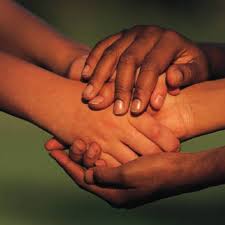“Ve-ahavta Lere-acha Kamocha.”
 These famous words from this week’s parsha became the “raison d’etre” and basis for all of the teachings of Rabbi Akiva. During this period of counting the Omer and the days leading up to the giving of the Torah, we remind ourselves of this all-encompassing principle promoted by Rabbi Akiva. It was his students whose deaths we mourn during this period of the Omer, who failed to reach the level of love and respect for one’s fellow man. But how can the Torah truly expect us to love someone else as much or the same way that we love ourselves?
These famous words from this week’s parsha became the “raison d’etre” and basis for all of the teachings of Rabbi Akiva. During this period of counting the Omer and the days leading up to the giving of the Torah, we remind ourselves of this all-encompassing principle promoted by Rabbi Akiva. It was his students whose deaths we mourn during this period of the Omer, who failed to reach the level of love and respect for one’s fellow man. But how can the Torah truly expect us to love someone else as much or the same way that we love ourselves?
According to the Ramban (Nachmanides), the Torah is commanding us to love our friend in everything, i.e. in the same way that we would love ourselves in all good things. The word “kamocha” does not mean “as much as” but rather “just as”. The same way that we would want the best for ourselves, is the way that we should want the best for others. We do this by overcoming the selfishness that we experience that leads us to feel that we are the only ones who can have the good things. The Torah does not believe that we will not care about ourselves more than anyone else but that we have to strive to really “love” that someone else also has gifts and merits. The jealousy that we might have in our hearts must be removed. We need to wish that everyone else around us have the gifts of wealth, honour, knowledge, and success. How many of us can say that we really feel happy for someone else’s achievements? How many of us model this for our kids in our words and our actions?
There is a concept in Yiddish known as being able to “fargin” someone, which means to be truly happy for someone without any hint of jealousy. Why is it so important to work on this trait? Rabbi Ariel Rackovsky suggests the following:
1. If we are in a constant state of jealousy then we will never be able to participate and enjoy another person’s simchas and successes.
2. If we don’t remove this jealousy, then it will ultimately colour all of our own experiences in a negative fashion. The stress of being jealous will push us to second guess all of our decisions.
3. Finally, the jealousy on our side will impact so greatly that the other side will never trust us and will not want to be a part of our good or bad experiences.
When the Torah suggests that we love another person just as we love ourselves, the message is not just about giving love but about how to remove the barriers that make the giving easier for all of us.
Shabbat shalom.












